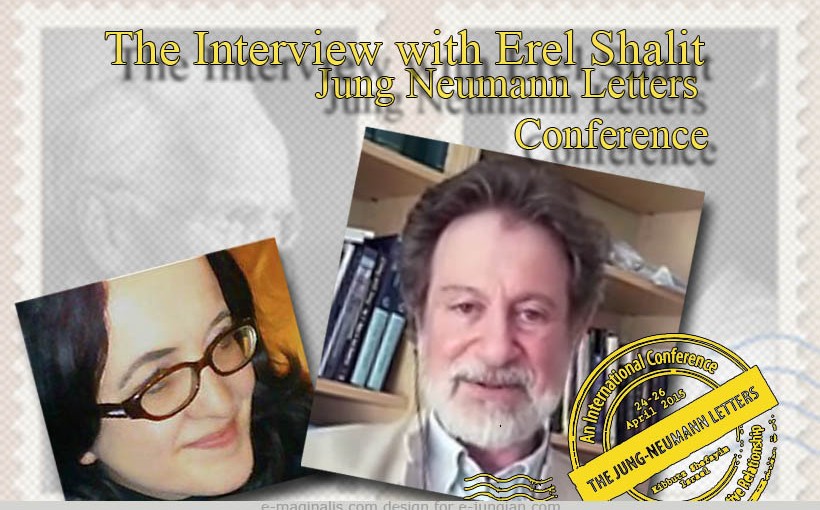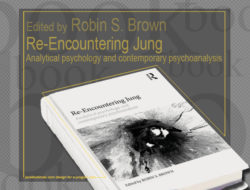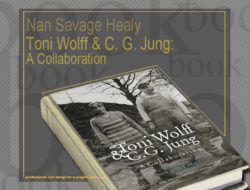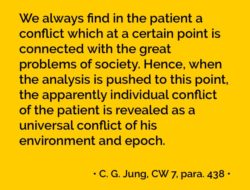Malgorzata Kalinowska, Editor in Chief of e-jungian.com interview with Erel Shalit
The Interview was conducted on the 26th of May 2015
in Kibbutz Shefayim, Israel, during The Jung Neumann Letters Conference
LISTEN TO THE INTERVIEW:
FULLTEXT TRANSCRIPT:
Malgorzata Kalinowska: Let me first say that I am very happy to be here today and to participate in this conference as the works of Erich Neumann were at the beginning of my studies. So he was a second analytical psychology author I read in my life and I think his works strongly infulenced me.
I was just thinking how was it to prepare this event and the book publication. I imagine it was a lot of work for you.
Erel Shalit: First of all, I’m glad that you’re here, and we are now at the final day of the conference, in fact, the final afternoon of the conference, and it seems like we have been able to gather here in a good atmosphere, and it’s been a long preparation.
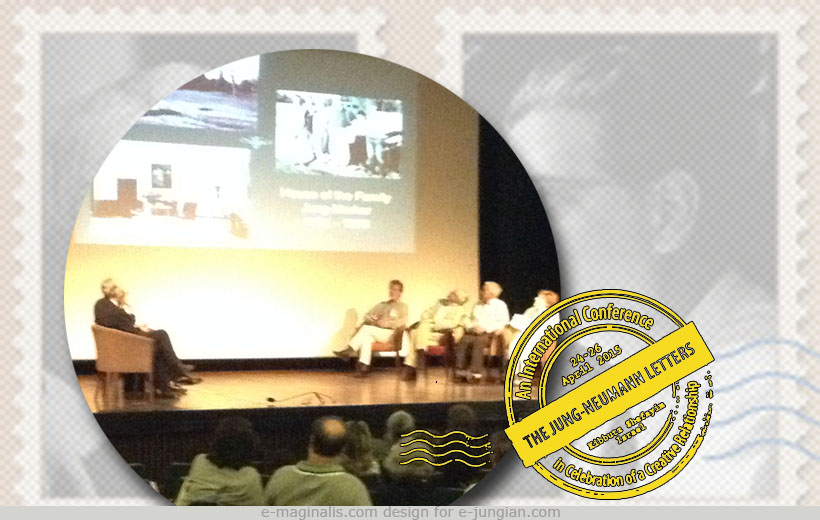 ES: It’s been lots of hard work, but the longer preparation was to be able to get the correspondence published, it’s been a very, very long story, a long process…
ES: It’s been lots of hard work, but the longer preparation was to be able to get the correspondence published, it’s been a very, very long story, a long process…
MK: Who came up first with this idea, at the very beginning, how was it?
ES: There were efforts decades ago to publish the correspondence, but for a variety of reasons it was delayed, and none of the previous attempts to get it published managed to work out. Then about nine years ago, the original manuscripts of the correspondence were sold at auction – I don’t know where the original manuscripts are, and it seems like most people don’t know who bought them – they were anonymous buyers. Eventually we did manage to conclude an agreement with the Jung foundation – the Philemon foundation – and I as the representative of the Neumann Estate, we managed to come to an agreement about the preparation for the publication of the correspondence. And it took two and half years until it actually was published now a few weeks ago. Some of Jung’s letters [to Neumann] were published in his letters, you know in these 2 vol. letters of C.G. Jung. And some of Neumann’s letters were published in articles previously. Those who had seen much of the correspondence already in the past considered it to be Jung’s most important correspondence, probably beside the Freud-Jung correspondence, so we all knew that it was a very valuable correspondence. I got to read it a few years ago and, of course, agreed that it was tremendously interesting. But I think we also received an extra bonus because when the editor of the correspondence, Martin Liebscher, proceeded with his work, and he is a good scholar and historian, so he made lots of research, managed to find some additionals that were not known and that are published now in the correspondence. When we signed the agreement about the correspondence, in fact, Ulrich Hoerni, Jung’s grandson suggested we hold a conference in Israel for the publication. So this is where we are now.
MK: And it was a magnificent idea as it is located at its roots.
ES: Yes, right.
MK: Many times during the conference it was empahsized how important is the meaning of the soli, the meaning of the ground in connection to the spirit, I think it is very meaningful also for this conference. For me it was very important in context of this title „Analytical Psychology in Exile” because now we are here with such a big event.
ES: Yes, I completely agree with you. The importance of the soil, the ground, and this was the archetype of the ground that Neumann turned to, came by his own desire and felt basically rooted in.
MK: And he writes in one of his letters that his dreams started to show connection to the ground.
ES: Yes, particularly his anima, when he connected to the ground here.
MK: He wrote about female figures in his dreams.
ES: Exactly
MK: I was thinking – what is for you the most important aspect of Neumann’s psychology for contemporary analytical psychology and for our times?
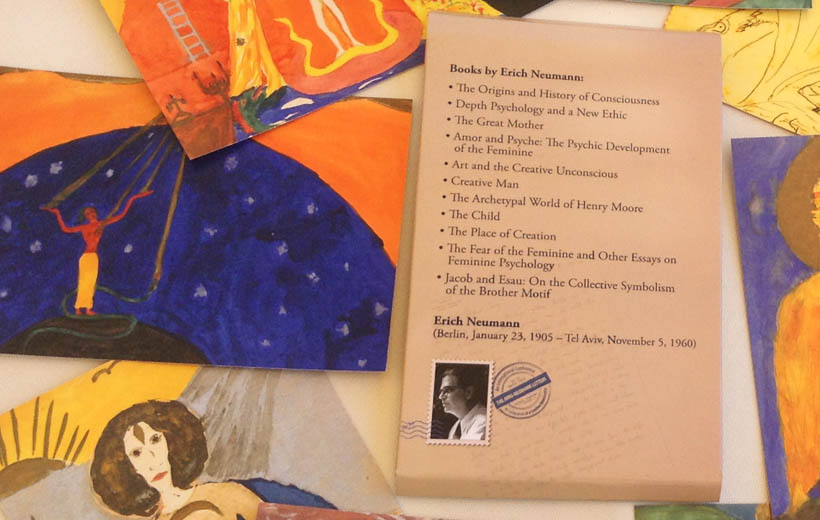 ES: I would say three things: his ideas are interesting, such as the ego-self axis that later Edinger wrote about, and other concepts of Neumann’s, some that are more or less known. For instance he added centroversion to introversion and extroversion, and he spoke of centroversion as one aspect of the individuation process. And besides his concepts I think that there are another couple of issues that are important, one is the way he connected the individual to the external collective. Not only to the collective unconscious, but the cultural psyche, the objective psyche, and to the modern times. Of course Jung did that as well, Freud did that as well. But Neumann did it in his particular way, not only looking into the shadow of the development of what would happen to the Hebrew and Israeli soul on its own soil. But many other aspects as well, which include his writings about mass man, and the tendencies of the modern and maybe even the postmodern era. We can see it in his book “The New Ethic”. We can see it in one of the appendices to his “Origins of Consciousness” where he speaks about the mass man. And in some of his Eranos lectures, I personally, particularly since I deal with the relationship between the individual and one’s era, and the external collective, I find him really a pioneer in that field. The third aspect is because he dared to be his own individual. He firmly rooted in analytical psychology with this deep relationship, not an easy relationship, but a complex relationship with Jung, but he was not what one could call a card-carrying member of the Jungian orthodoxy. He was not orthodox – he was not pragmatic in that sense – but he dared to develop his own ideas and I think that’s something that Jung appreciated. I think so, Jung admits it’s quite striking to see how Neumann, who is not yet thirty, challenges the well-known master who is nearly 60 years old, and I think he appreciated that.
ES: I would say three things: his ideas are interesting, such as the ego-self axis that later Edinger wrote about, and other concepts of Neumann’s, some that are more or less known. For instance he added centroversion to introversion and extroversion, and he spoke of centroversion as one aspect of the individuation process. And besides his concepts I think that there are another couple of issues that are important, one is the way he connected the individual to the external collective. Not only to the collective unconscious, but the cultural psyche, the objective psyche, and to the modern times. Of course Jung did that as well, Freud did that as well. But Neumann did it in his particular way, not only looking into the shadow of the development of what would happen to the Hebrew and Israeli soul on its own soil. But many other aspects as well, which include his writings about mass man, and the tendencies of the modern and maybe even the postmodern era. We can see it in his book “The New Ethic”. We can see it in one of the appendices to his “Origins of Consciousness” where he speaks about the mass man. And in some of his Eranos lectures, I personally, particularly since I deal with the relationship between the individual and one’s era, and the external collective, I find him really a pioneer in that field. The third aspect is because he dared to be his own individual. He firmly rooted in analytical psychology with this deep relationship, not an easy relationship, but a complex relationship with Jung, but he was not what one could call a card-carrying member of the Jungian orthodoxy. He was not orthodox – he was not pragmatic in that sense – but he dared to develop his own ideas and I think that’s something that Jung appreciated. I think so, Jung admits it’s quite striking to see how Neumann, who is not yet thirty, challenges the well-known master who is nearly 60 years old, and I think he appreciated that.
MK: Yes, it is in one of the first letters which he ends with he ends with the sentence: „I know there is some Mars in this, but I think it is all right” – this is so impressive, because he was so young.
ES: Yes, it is very striking I think. But I think that Jung preferred that to those who become his followers, and who need to feel that whatever they express is in accordance with the formal law of Jungian psychology.
MK: Yes, because followers need to be fed all the time with ideas and a kinder spirit is just a companion
ES: Right. It reminds me often of how new generations of Jungian analysts here in Israel asking if the story is true that when I applied for Jungian training, the chairperson of the committee said that she doubted that I would ever really be able to learn Jungian concepts. And since I have written a few textbooks about it, they usually laugh at that. But the truth is, that she was absolutely right. I have never fully learned the Jungian concepts. It’s not that they are so complicated, but I believe that I will never actually fully learn them, and I hope that I will never learn them.
ES: Exactly. And to constantly combat with it, struggle with it, develop it maybe in a certain sense and not accept the dogma. Not to be idiosyncratic and make up entirely one’s own but to be in dialogue with it, to be in a living relationship with concepts, ideas, thoughts. Jung himself developed over the years. So we see that the self in his early writings does not mean the same as the self in later writings.
MK: This was actually very important for me when I started to read letters. I am still in the process, as I bought the book a week ago or so, because I am from the group that you know, it is at its youth it began several years ago. To see how one struggles with himself, his development, his authorities is very meaningful for me. We can see how Erich Neumann works apply not only for advanced Jungian groups, they relate to the fresh groups very much. We can understand then how such development is dynamic, that this is not the ortodoxsy. The ortodoxy is the death of the concept.
ES: Exactly
MK: Would you like to add something to our conversation? Because you know, I could go on in our conversation for an hours, and we have little time left.
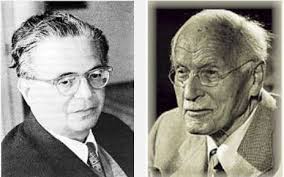 ES: I’m very happy that this probably signifies a certain renewal of Neumann not only because of who Neumann was and his thoughts, etc. But I think it can bring additional vitality to analytical psychology. Jung as for instance was quoted, also in the dramatic presentation, told his followers in Zurich that with Neumann one has to think with him. And yes, Neumann was a thinker. He understood the feminine psyche very well and that should maybe be added as on of the important aspects of his contribution. That he required, I think and also in his books, that one doesn’t take him easy. One needs to invest quite a lot oneself in order to be in dialogue with Neumann. And I think that can bring a vitality to analytical psychology, and therefore this kind of renewal I find may possibly be quite important. The papers that have been presented over the conference show a lot of creativity among the speakers, and quite a lot of passion in fact in working with the material in the way they have done. And this will be compiled into a book that Murray Stein and I will edit. I think that can hopefully be a nice contribution as well, and quite soon, an early manuscript of Neumann’s called Jacob and Esau, the symbolic… I’ve forgotten the title, you see this is old age – of the brother motif, will be published in half a year or less. I had the privilege to edit it and write the introduction, and there will be more material of Neumann that has not been published that will be published. And so all in all I think that both because of Neumann’s importance, the importance of the contact between Jung and Neumann, and for the vitality of individual thinking in the field of analytical psychology, and I hope that this conference has contributed a little to that as well.
ES: I’m very happy that this probably signifies a certain renewal of Neumann not only because of who Neumann was and his thoughts, etc. But I think it can bring additional vitality to analytical psychology. Jung as for instance was quoted, also in the dramatic presentation, told his followers in Zurich that with Neumann one has to think with him. And yes, Neumann was a thinker. He understood the feminine psyche very well and that should maybe be added as on of the important aspects of his contribution. That he required, I think and also in his books, that one doesn’t take him easy. One needs to invest quite a lot oneself in order to be in dialogue with Neumann. And I think that can bring a vitality to analytical psychology, and therefore this kind of renewal I find may possibly be quite important. The papers that have been presented over the conference show a lot of creativity among the speakers, and quite a lot of passion in fact in working with the material in the way they have done. And this will be compiled into a book that Murray Stein and I will edit. I think that can hopefully be a nice contribution as well, and quite soon, an early manuscript of Neumann’s called Jacob and Esau, the symbolic… I’ve forgotten the title, you see this is old age – of the brother motif, will be published in half a year or less. I had the privilege to edit it and write the introduction, and there will be more material of Neumann that has not been published that will be published. And so all in all I think that both because of Neumann’s importance, the importance of the contact between Jung and Neumann, and for the vitality of individual thinking in the field of analytical psychology, and I hope that this conference has contributed a little to that as well.
MK: And when can we expect the Proceedings. Will it be the next year, or later?
ES: Ah, no, I’m sure that within a year.
MK: That’s great. Thank you very much. It has been a pleasure to be here and our conversation has been an important one for me, I hope we can meet soon in the future.
ES: I hope we will, and thank you so much.
The Interview editing: Anna Forys, Tomasz Jasinski
Read our report from Jung Neumann Letters Conference
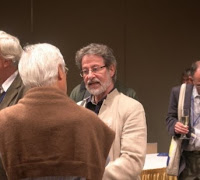 Erel Shalit
Erel Shalit
Erel Shalit is a Jungian psychoanalyst in Ra’anana, Israel. He is a training and supervising analyst, and past president of the Israel Society of Analytical Psychology (ISAP). He is the author of several publications, including The Hero and His Shadow: Psychopolitical Aspects of Myth and Reality in Israel, Revised Edition and Complex: Path of Transformation from Archetype to Ego
. Articles of his have have appeared in Quadrant, The Jung Journal, Spring Journal, Political Psychology, Clinical Supervisor, Round Table Review, Jung Page, Midstream, and he has entries in The Encyclopedia of Psychology and Religion. Dr. Shalit lectures at professional institutes, universities and cultural forums in Israel, Europe and the United States.
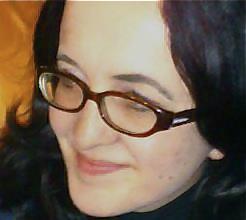 Malgorzata Kalinowska
Malgorzata Kalinowska
Malgorzata is the Jungian analyst, IAAP Individual Member, working in a private practice in Poland. She is also the Editor-In-Chief of e-jungian.com, Jungian online magazine. Her main areas of interest are the transcultural aspect of development of analytical psychology and the relationships between trauma and culture. She writes and publishes on those subjects. She is also English Polish translator (the most recent translations: The Inner World of Trauma by Donald Kalsched and Alchemy. The Introduction to the Symbolism and the Psychology by Marie-Louise von Franz currently awaiting publictation). Her blog can be found at e-jungian.com and psychoterapiajung.pl.
Tags: C. G. Jung, Erel Shalit, Erich Neumann, interviews, Malgorzata Kalinowska













